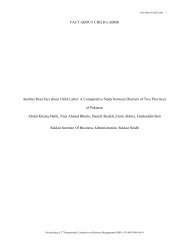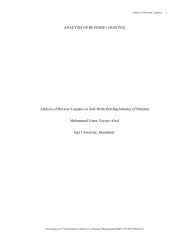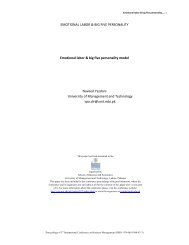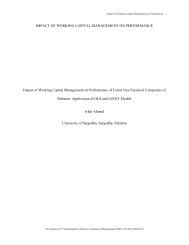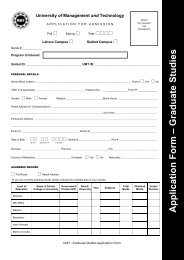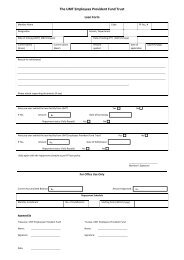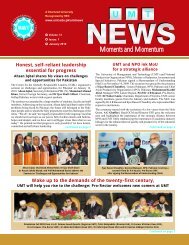Role Ambiguity And Employees Organization Based Self Esteem
Role Ambiguity And Employees Organization Based Self Esteem
Role Ambiguity And Employees Organization Based Self Esteem
Create successful ePaper yourself
Turn your PDF publications into a flip-book with our unique Google optimized e-Paper software.
<strong>Role</strong> <strong>Ambiguity</strong> <strong>And</strong> <strong>Employees</strong> <strong>Organization</strong> <strong>Based</strong> <strong>Self</strong> <strong>Esteem</strong> 5LITERATURE REVIEWORGANIZATION BASED SELF ESTEEM:The word self is complex and multidimensional because it reveals diverse attributes andabilities, some of which are manifested in external objects such as the body and others areinternal consisting of perception and beliefs. <strong>Organization</strong> based self esteem determine the selfperceived value that an employee has for himself as organization member acting within anorganizational context. <strong>Employees</strong> with high level of organization based self esteem perceivethemselves as important, worthwhile and meaningful within their organization and contributeeffectively towards organizational goals (Dunham, & Cummings, 1993; Gardner & Pierce, 1998).According to Taylor and Brown in 1988 OBSE should be encourage to increase the performanceof employees actually employees performance at a high level have favorable attitudes about anorganization and engage in other organization related behaviors that would benefit theorganization. <strong>Employees</strong> with low level of OBSE are more reactive than the employees withhigh OBSE and they are more vulnerable to unfavorable role conditions, such as role conflict,role ambiguity and poor work condition, poor supervisory support and work overload. Researchrevealed that there is a significant moderating effect of OBSE on role condition responserelationships.According to Pierce et al (1989) organization based self esteem is positively related toorganizational satisfaction, organizational commitment, job performance and citizenshipbehavior. OBSE and job satisfaction are related to each other i.e. employees with high OBSEhave high level of job satisfaction and consider themselves as meaningful, respected andimportant for their organization. <strong>Employees</strong> who feel that their work is appreciated by theemployer and are also aligned with the organization’s objectives believe they can make a realdifference to the organization and to others (Catlette and Hadden, 1998). Similarly Trottn(1996) proposed that spiritual well being of an employee that includes a sense of communityand alignment with organizational objectives will also be positively related to an employees’social adjustment. Alignment with organizational values can also be expected to enhanceemployee organization based self esteem because employee feel himself a responsible personfor the organization’s success or failure (Catlette and Hadden, 1998). Thus employees with highlevel of OBSE experience a high sense of service and contribute their energies, expertise andthoughts to the company (Brown, 1992). Ganster and Schaubroeck in 1991 stated thatemployees with low level of self esteem are more reactive of role conflict and role ambiguitythan employees with high self esteem but they are also more passive in coping with thesestressors. Low self esteem employees react more strongly to negative variables in theenvironments than those with high self esteem.Proceedings of 3 rd International Conference on Business Management (ISBN: 978-969-9368-07-3)



